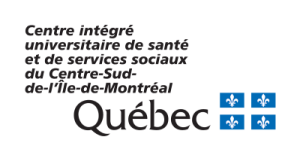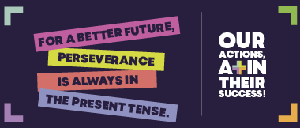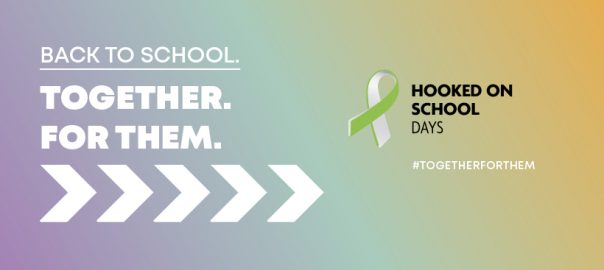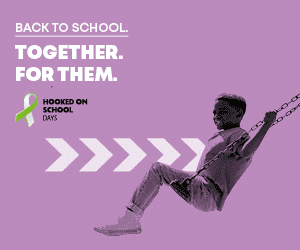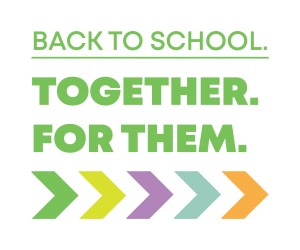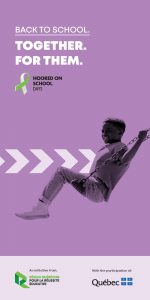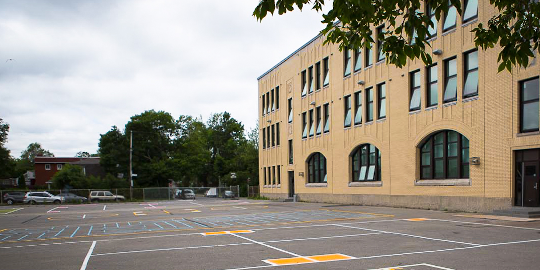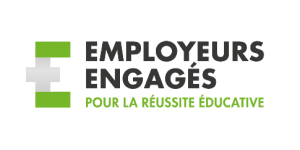Poursuivre des études postsecondaires : motivations et besoins des élèves montréalais
Le jeudi 21 mars 2024
291 participant(e)s
La conférence virtuelle | La présentation | La conférence en rediffusion | Ressources pour aller plus loin
En primeur !
Présentation des résultats d’une enquête menée auprès de 500 finissant(e)s de 5e secondaire sur leur perception quant à la transition postsecondaire et leur expérience vécue.
La conférence virtuelle
Le passage du secondaire au collégial est un moment marquant pour des milliers de jeunes montréalais. Quels sont les besoins et les motivations des finissant(e)s du secondaire en matière de soutien à la poursuite de leurs études ?
Afin d’apporter un éclairage nouveau sur le sujet, cette conférence répond entre autres aux questions suivantes :
- Qui a le plus d’influence sur l’orientation des finissant(e)s du secondaire à Montréal ?
- Quelle perception les élèves de cinquième secondaire se font-ils des cégeps ?
- Quelle proportion d’entre eux se sentent prêts pour les études postsecondaires ?
- Comment réagit la population étudiante s’étant vu refuser une première demande d’admission au cégep au premier tour ?
Cette conférence s’adresse aux personnes professionnelles et gestionnaires des ordres d’enseignement secondaire et collégial, des milieux communautaires, du milieu de la santé ou de tout autre domaine connexe qui s’intéresse à la transition postsecondaire (services d’aide à la réussite, services éducatifs, d’orientation scolaire et professionnelle, de conseil pédagogique, d’aide individuelle, d’intervention psychosociale, de communications, etc.).
La présentation
Téléchargez la présentation
Téléchargez le rapport d’enquête

Marco Gaudreault
Chercheur
Centre d’étude des conditions de vie et des besoins de la population (ÉCOBES)
Cégep de Jonquière
 Camélia Dubois
Camélia Dubois
Chercheure
Centre d’étude des conditions de vie et des besoins de la population (ÉCOBES)
Cégep de Jonquière
 Béatrice Clin
Béatrice Clin
Professionnelle de recherche
Centre d’étude des conditions de vie et des besoins de la population (ÉCOBES)
Cégep de Jonquière
DES RESSOURCES POUR ALLER PLUS LOIN
Documentation | Conférences | Outils
De la documentation
Dossier thématique sur la transition secondaire-collégial
Tout ce qu’il faut savoir sur cette étape du parcours scolaire : particularités, facteurs de risque et de protection, pistes d’action et ressources pour aller plus loin… et bien plus.
Modèles
Trois modèles aident particulièrement à comprendre la transition secondaire-collégial :
- Le modèle des cycles de transitions, de Mikaël De Clercq
- Le modèle de l’intégration des étudiants, de Vincent Tinto
- Le modèle des angles de la transition secondaire-collégial, tiré d’une publication du Conseil supérieur de l’éducation
Enquête sur la réussite à l’enseignement collégial
Cette enquête d’ÉCOBES se base sur le Sondage provincial sur les étudiants des cégeps (SPEC). Les données colligées à partir de ce sondage permettent à chaque cégep participant de tracer un portrait de sa population étudiante tout en offrant la possibilité d’obtenir des profils étudiants par région ou pour l’ensemble du réseau.
Enseignement supérieur et inégalités sociales: entre politiques publiques et parcours éducatifs
Un ouvrage de Pierre Doray, Benoît Laplante, Pierre Canisius Kamanzi et Annie Pilote visant à mieux comprendre la situation récente des inégalités scolaires et de l’expérience étudiante.
Des webinaires et des conférences
Webinaire | La transition du secondaire-collégial à Montréal : mieux comprendre pour mieux agir
(Réseau réussite Montréal – 15 décembre 2022)
Afin d’alimenter les réflexions sur le passage au collégial, deux expert(e)s de la recherche présentent, entre autres, les caractéristiques d’une transition harmonieuse, de nouvelles données pour suivre l’évolution de la transition à Montréal, un aperçu de la situation des jeunes à risque et des pratiques inspirantes.
Conférences | Les transitions au cœur de nos préoccupations : deux perspectives internationales
(Observatoire sur la réussite en enseignement supérieur et Transitions réussies vers les études supérieures – 22 août 2023)
Deux personnes expertes de renommée internationale, Laurie A. Schreiner et Mikaël De Clercq, proposent chacune une conférence sur leur conception des transitions vers les études supérieures. Ces présentations ont ouvert des discussions sur la définition de la notion de transition, ses composantes, ses pratiques efficientes et ses aprioris.
Conférence | Promoting Student Succès : A Shared Responsibility
(William Paterson University – 13 mars 2009)
Vincent Tinto donne ici une présentation sur la persévérance scolaire et la nécessité de favoriser des milieux d’apprentissage dans lesquels les élèves réussissent. Cette conférence comprend une discussion sur les conditions qui influent sur la réussite des élèves et les stratégies pour faciliter la réussite des élèves dans un contexte américain.
Conférence | La dynamique motivationnelle
(Université Savoie Mont Blanc – 9 décembre 2013)
Rolland Viau présente ici le modèle conceptuel qu’il a développé pour comprendre la dynamique motivationnelle en contexte d’apprentissage. Il explique que la perception de la valeur de l’activité d’apprentissage, la perception de compétence de l’étudiant (de soi-même envers la tâche) et la perception de contrôlabilité de l’activité ont un impact central sur l’engagement cognitif et la persévérance. Les apprentissages concrets, la performance et la réussite (objective ou subjective) contribuent de manière cyclique aux facteurs de perceptions dans un cycle qui forme la dynamique motivationnelle.
Des outils
Guide d’implantation – Bonnes pratiques en contexte communautaire pour mieux accompagner les jeunes lors de leur transition faisant suite au secondaire
Un guide d’implantation pour mieux soutenir les organismes communautaires souhaitant intégrer à leurs services une ressource d’accompagnement pour les jeunes au sortir du secondaire.
Observatoire sur la réussite en enseignement supérieur (ORES)
Le site de l’ORES met toutes sortes de ressources, d’activités et de pistes prometteuses à la disposition des acteurs(trices) des milieux collégial et universitaire pour favoriser l’accessibilité, la persévérance et la réussite des étudiant(e)s.
Transitionsscolaires.ca
Ce site du CRÉPAS offre aux jeunes information et ressources pour effectuer une transition tout en douceur et bénéficier du support nécessaire à la réussite du projet collégial.
Mécanismes pour favoriser la transition du secondaire vers le collégial
Cette ressource du Ministère de l’Éducation propose différents dispositifs et actions pour favoriser la réussite de cette transition.
Une conférence de





